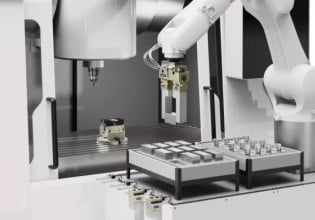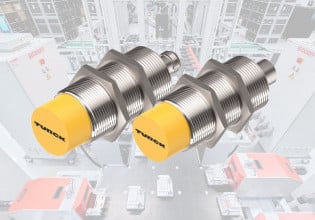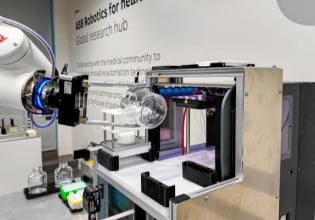J
Hello, the list,
A client is being forced to change - either with their existing vendor or to another - from a very reliable DCS technology with which they have
a great deal of experience. Everyone on this list knows the story. They must consider alternatives, good timing or not.
Measuring and controlling with intelligent field devices is a possible alternative to a traditional DCS controlling with analog inputs, analog outputs, and all the attendant signal conditioning and wiring. Significant FUD, though. "Ya don't know what ya don't know, except that new solutions breed new problems."
In a previous thread, "foundation fieldbus or profibus from field devices?" on Feb 11, 2002 5:22 pm, Dean wrote about system cost: <clip> I am now currently involved in an upgrade and our group is attempting to answer the Fieldbus question.</clip> and on Feb 12, 2002 12:36 pm, Jeff Hunkele wrote about comparing buses: <clip> I completed the study, with another engineer, </clip>
*** Question ***
Does anyone have personal experience with control systems built with both of these buses, not especially from an implementation cost perspective, but from a performance, maintainability, and reliability perspective?
Examples of issues that come to mind are below, to minimize this part of the posting.
Thank you very much for any thoughts,
John G. Boland, president
Strateg!c Method$ Corporation
One Parker Square Suite 408
2525 Kell Boulevard
Wichita Falls, Texas 76308
940.322.9922
940.723.1478 fax
*** Examples of possible performance benefits ***
Some intelligent transmitters have several bits more resolution internally in their front-end ADC (analog to digital converter) than available at their analog output DAC (digital to analog converter) which is typically, 12 bits.
Intelligent transmitters and positioners containing PID functions, *properly* configured, may eliminate PID requirements for a traditional
DCS.
An intelligent transmitter A/D, <compute scale and PID>, <communicate>, and D/A at a positioner must produce a more precise result than the
existing control path from a smart transmitter A/D, <compute scale>, D/A, A/A (DCS input signal conditioning), A/D, <compute PID>, D/A, A/A
(DCS output signal conditioning), and A/A at a positioner.
Field device management and diagnostics???? Better with one bus than with the other???
*** Examples of possible technology traps ***
Grounding and signal isolation practices, evolved for analog components, may not be suitable for the digital comms.
Failure modes may be other than advertised, i.e., intelligent components may be wounded but not indicating so.
Failure of a component on a bus segment may "take down" the bus segment and cripple troubleshooting.
Backup bus master concept may not work as intended.
The magic may bumfoozle maintenance technicians.
A client is being forced to change - either with their existing vendor or to another - from a very reliable DCS technology with which they have
a great deal of experience. Everyone on this list knows the story. They must consider alternatives, good timing or not.
Measuring and controlling with intelligent field devices is a possible alternative to a traditional DCS controlling with analog inputs, analog outputs, and all the attendant signal conditioning and wiring. Significant FUD, though. "Ya don't know what ya don't know, except that new solutions breed new problems."
In a previous thread, "foundation fieldbus or profibus from field devices?" on Feb 11, 2002 5:22 pm, Dean wrote about system cost: <clip> I am now currently involved in an upgrade and our group is attempting to answer the Fieldbus question.</clip> and on Feb 12, 2002 12:36 pm, Jeff Hunkele wrote about comparing buses: <clip> I completed the study, with another engineer, </clip>
*** Question ***
Does anyone have personal experience with control systems built with both of these buses, not especially from an implementation cost perspective, but from a performance, maintainability, and reliability perspective?
Examples of issues that come to mind are below, to minimize this part of the posting.
Thank you very much for any thoughts,
John G. Boland, president
Strateg!c Method$ Corporation
One Parker Square Suite 408
2525 Kell Boulevard
Wichita Falls, Texas 76308
940.322.9922
940.723.1478 fax
*** Examples of possible performance benefits ***
Some intelligent transmitters have several bits more resolution internally in their front-end ADC (analog to digital converter) than available at their analog output DAC (digital to analog converter) which is typically, 12 bits.
Intelligent transmitters and positioners containing PID functions, *properly* configured, may eliminate PID requirements for a traditional
DCS.
An intelligent transmitter A/D, <compute scale and PID>, <communicate>, and D/A at a positioner must produce a more precise result than the
existing control path from a smart transmitter A/D, <compute scale>, D/A, A/A (DCS input signal conditioning), A/D, <compute PID>, D/A, A/A
(DCS output signal conditioning), and A/A at a positioner.
Field device management and diagnostics???? Better with one bus than with the other???
*** Examples of possible technology traps ***
Grounding and signal isolation practices, evolved for analog components, may not be suitable for the digital comms.
Failure modes may be other than advertised, i.e., intelligent components may be wounded but not indicating so.
Failure of a component on a bus segment may "take down" the bus segment and cripple troubleshooting.
Backup bus master concept may not work as intended.
The magic may bumfoozle maintenance technicians.






